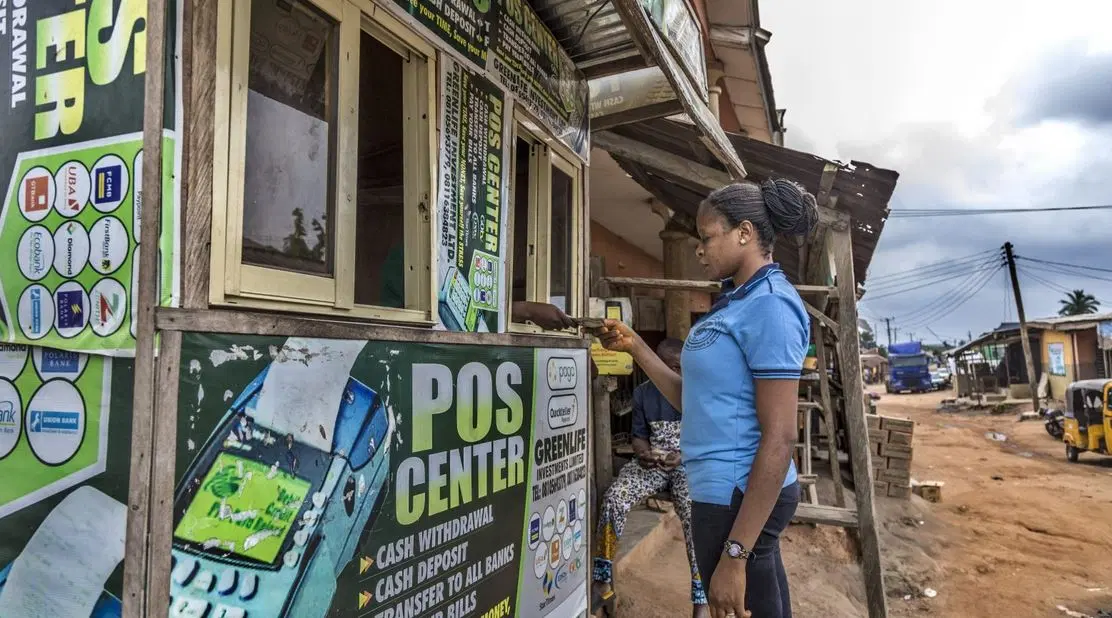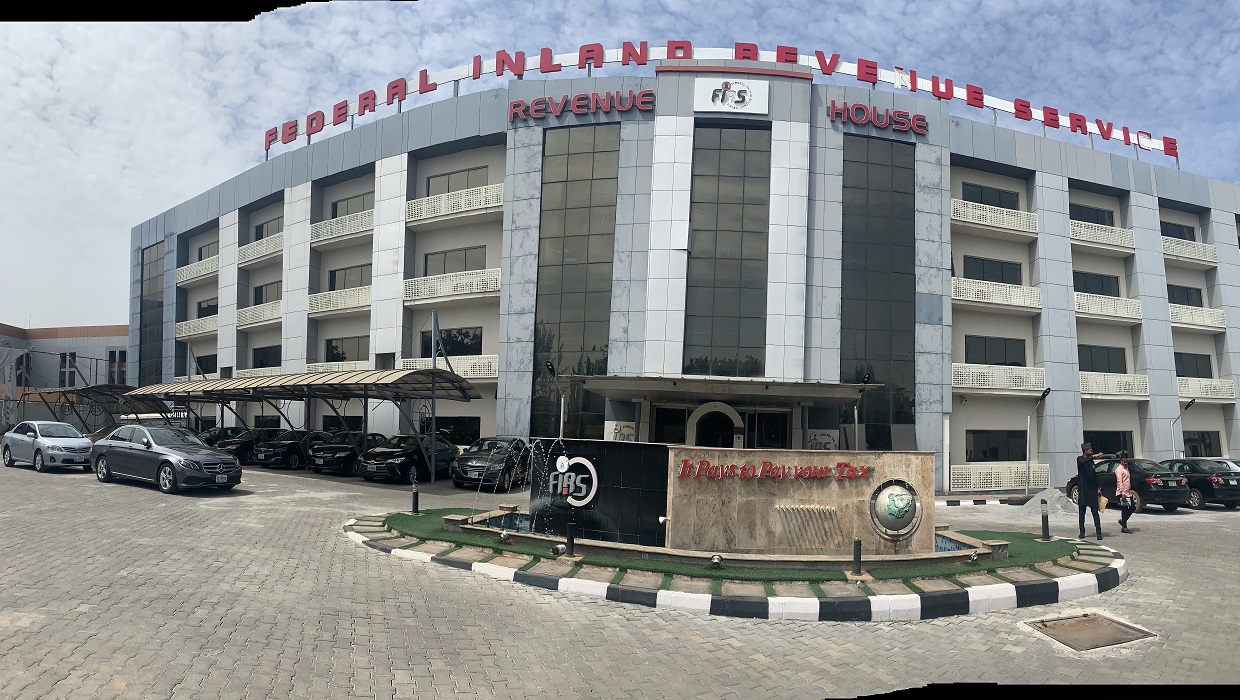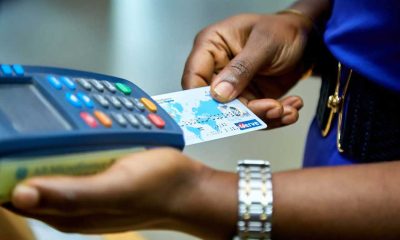Business
CBN gives PoS operators one month to use aggregators

The Central Bank of Nigeria has directed that all Point of Sale operators must route transactions through licensed payment terminal service aggregators.
A circular posted on the CBN’s website on Thursday stated that the move was aimed at enhancing the tracking and management of electronic transactions in the country.
“As part of efforts to mitigate the concerns regarding channelling all Point of Sale transactions through a single aggregator, the CBN on April 19, 2024, granted a second PTSA licence to Unified Payment Services Limited.
“In furtherance of the above, the CBN hereby directs as follows: 1 Acquirers are henceforth required to route all transactions from PoS terminals at merchant and agent locations, whether on physical or electronic PoS terminals, through any CBN-licensed Payment Terminal Service Aggregator PTSAs are required to send PoS transactions to only Processors certified by the relevant Payment Scheme, nominated by the Acquirer and licensed by CBN,” the apex bank noted.
It noted that the Nigeria Interbank Settlement System Plc was granted a PTSA licence in 2011 to handle the aggregation of PoS transactions.
However, to address concerns about routing all transactions through one aggregator, the CBN granted a second PTSA licence to Unified Payment Services Limited earlier this year in April.
“To achieve the objective of tracking electronic transactions in Nigeria, the Central Bank of Nigeria in August 2011, granted a Payment Terminal Service Aggregator licence to Nigeria Interbank Settlement System Plc. As part of efforts to mitigate the concerns regarding channelling all Point of Sale transactions through a single aggregator, the CBN on April 19, 2024, granted a second PTSA licence to Unified Payment Services Limited.”
The CBN has instructed that all acquirers, the institutions responsible for processing payments from PoS terminals, must channel transactions through any of the two licensed aggregators.
In addition, licensed processors are required to integrate with both PTSAs to give acquirers the flexibility to choose their preferred service providers.
It noted that payment terminal service providers, responsible for deploying and managing PoS terminals, must ensure their devices and applications are configured to work with any PTSA chosen by the acquirers.
According to the CBN, PTSPs are also required to submit monthly reports to the CBN, detailing the number of merchants and agents they manage, as well as the PTSA services used.
Similarly, the CBN has mandated that each PTSA submit monthly reports of all transactions processed through their platforms.
According to the apex bank, the reports must be submitted to the director of the Payments System Management Department within seven days after the end of each month.
The CBN urged all PSPs to regularise their operations with the PTSAs within 30 days, warning that non-compliance with the directive would attract appropriate sanctions.
Recall that the Corporate Affairs Commission announced on July 7 that all Point of Sale operators in the country must register with it before September 5.
Business
APPLY: FIRS begins recruitment of senior managers, directors

The Federal Inland Revenue Service (FIRS) has begun its recruitment exercise for experienced professionals to fill specialised positions in the organisation.
Announcing various vacant roles on Monday, the FIRS said the recruitment exercise is part of its consolidation strategies.
The advertised positions include assistant manager and deputy manager roles in tax (investigation), PRS (research), public relations, and ICT (cybersecurity and AI management).
Other available roles are assistant manager and deputy manager in PRS (risk management), assistant manager and deputy manager in legal, and senior manager and assistant director roles in tax (audit).
“Applicants must have qualifications and relevant professional certificates as specified in the positions they are applying for and must also fulfill the following requirements,” the agency said.
“Applicant must possess Bachelor’s degree/HND with at least second class lower/lower credit.
“Applicant must have completed NYSC not later than 31st December 2017.
“Applicant for the position of assistant manager and deputy manager must not be more than 40 years of age while senior manager and assistant director must not be more than 45 as at 31st December 2024.”
The revenue agency said candidates must possess strong leadership and management skills, team spirit and ability to effectively delegate, interpersonal and communication skills, and strong Analytical skills.
“Knowledge of the Nigerian tax laws and appreciation of their application and understanding of the regulatory framework within which the FIRS operates,” the FIRS said.
“Knowledge of business/industry environment within which taxpayers operate.
“Ability to work as a regulator with the courage to ensure full compliance with laws.
“Interested candidates should apply via official FIRS career portal: careers.firs.gov.ng and or FIRS verified social media handles.”
The FIRS said the application portal will open on December 23, 2024, noting that the deadline for submissions is January 11, 2025.
The service advised applicants to carefully review the eligibility criteria before applying to ensure they meet all requirements and understand the qualifications needed for successful selection.
Business
UBA GMD calls for public-private partnership to accelerate economic growth

Oliver Alawuba, group managing director (GMD) and chief executive officer (CEO) of United Bank for Africa (UBA), has called for public-private partnership (PPP) to accelerate economic growth.
Alawuba spoke on December 20 during the launch of the newly renovated departure section of the Murtala Muhammed International Airport (MMIA), Lagos, refurbished by UBA.
According to a statement on Sunday by the bank, the project, which signifies a transformative moment in Nigeria’s aviation sector, shows UBA’s commitment to national development, highlighting the immense value of strategic PPPs.
The ceremony was attended by stakeholders, including Festus Keyamo, minister of aviation and aerospace development, and Olubunmi Kuku, managing director of the Federal Airports Authority of Nigeria (FAAN).
Alawuba commended the collaboration that led to the execution of the project, emphasising the need for public and private institutions to come together to build and revamp the nation’s assets.
“This renovation is a testament of UBA’s belief in the transformative power of investing in national assets. By modernising our airports, we not only enhance infrastructure but also position Nigeria as a global hub for tourism, trade, and investment,” he said.
“Public-private partnerships like this demonstrate what can be achieved when we unite for a shared vision of progress and investing in infrastructure catalyses economic growth, improves travel experiences, and creates opportunities across various sectors of the economy.
“The commissioning of the renovated departure section serves as a reminder of what strategic partnerships can achieve in driving national development and elevating Nigeria’s global standing.”
Business
Petrol to sell at N935/litre from today, says IPMAN

The Independent Petroleum Marketers Association of Nigeria has said that petrol is going to sell at N935 per litre beginning from Monday (today) based on the latest arrangement with the Dangote Petroleum Refinery.
IPMAN’s National President, Maigandi Garima, said the reduction in Dangote refinery’s ex-depot price for petrol and the uniform arrangement being put in place, would enable marketers to sell at N935 in their outlets nationwide, incurring a cost of N36 on logistics.
“Dangote refinery has brought another new arrangement of loading and pricing by which marketers would pay a fixed ex-depot price of N899.50k.
“The refinery is running a programme whereby it wants the fuel consumption across the country to be at the same rate. We are expecting the new arrangement to kick-start on Monday. Previously, the loading price was N970 per litre, but from Monday, petrol prices will drop to N935,” Garima stated.
The association also stated that over 30,000 of its members are set to commence petrol loading from the Dangote Petroleum Refinery and the Port Harcourt Refining Company following the reduction of the ex-depot price of the product to N899 per litre.
This came as it was observed that the pump price of petrol dropped on Sunday to between N950 and N980 per litre in a few filling stations in Lagos including MRS, BOVAS and NNPC. However, the cost was above N1,000 per litre in many other outlets in the state.
But IPMAN promised on Sunday that the price would drop further, as it said the cost of petrol would reduce to N935 per litre in more filling stations by Monday (today) in view of Dangote refinery’s new arrangement.
Similarly, retail outlet owners under the auspices of the Petroleum Products Retail Outlet Owners Association of Nigeria have begun registration with MRS filling station to lift Dangote petrol at N935 per litre.
The IPMAN National Publicity officer, Chinedu Ukadike, and the PETROAN President, Billy Gillis-Harry, disclosed these during separate exclusive interviews with The PUNCH on Sunday.
The development came after intense pricing competition in the nation’s downstream sector, which triggered a price war between NNPCL and Dangote due to a reduction in the ex-depot price to N899 per litre.
On Saturday, the NNPCL, in a surprising development, slashed petrol prices by 12 per cent, to the delight of Nigerians and marketers.
This decision, coming days after the Dangote Refinery reduced its price to N899, was confirmed by the Petroleum Products Retail Outlet Owners Association of Nigeria in a statement on Saturday.
Before now, petrol prices had consistently increased, causing customers to worry that the price hike might be sustained during the festive season.
The reduction in price to N935 in Lagos confirms projections by marketers and was exclusively reported by The PUNCH last Friday.
Providing further updates on the preparations for product lifting, the IPMAN publicity officer stated that marketers are getting ready to start loading petrol at a reduced price, as the national oil company has updated its pricing on the purchase portal.
Ukadike also said that the competition for market share between NNPCL and Dangote is beneficial for Nigerians because, in the end, it will reveal the true cost of PMS production and the expenses incurred in logistics.
According to him, the price war is central to a deregulated oil sector.
He said, “NNPCL has changed their price at their portal. It means that everyone who has access to that portal can be able to request and pay for products. Once you pay, you will called to the depot to pick up your products. Yes, they have changed the price on their portal.”
-

 News1 week ago
News1 week agoNaseni’s Executive Vice Chairman, Khalil Suleiman Halilu, Named 2024 Winner Of Daily Global Newspaper Conference Series Award For Science, Technology, Innovation, And Infrastructure
-

 Relationships1 week ago
Relationships1 week agoFour dating tips for single mum
-

 Relationships5 days ago
Relationships5 days ago‘I wish I met you before the wrong person’ – says Portable’s baby mama, Honey Berry, as she flaunts new lover
-

 Politics1 week ago
Politics1 week agoIbrahim Kashim resigns as Bauchi SSG
-

 Entertainment1 week ago
Entertainment1 week agoApostle Femi Lazarus, others top Spotify most streamed podcasts in Nigeria, Kenya, South Africa
-

 News6 days ago
News6 days agoLagos state government shuts Lord’s Chosen Church, businesses across Lekki, VI, others over noise, environmental infractions
-

 Business4 days ago
Business4 days agoPoS operators increase withdrawal charges, blame electronic levy, cash scarcity
-

 Politics1 week ago
Politics1 week agoRep seeks increased participation of women in politics


















